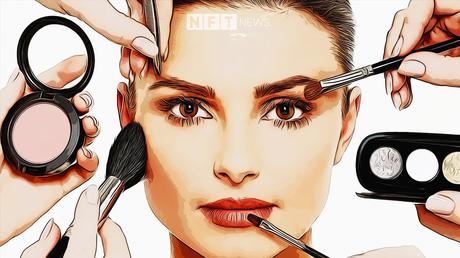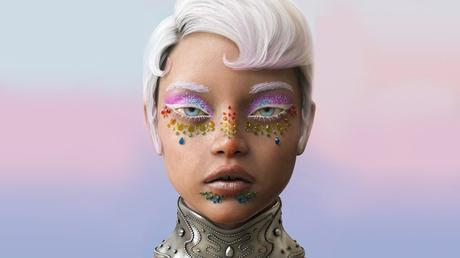
The natural experimentation and playfulness of cosmetics make them a good fit for virtual experiences. Experts say it’s not as collectible as fashion and doesn’t have as much of a place in gaming culture.
If a beauty company wants to do well in the metaverse, it needs to be customized, flexible, and rooted in the community.
“People who are interested in beauty are getting into the metaverse, but it might start with an AR filter. Abi Buller, a writer at The Future Laboratory, a strategic foresight company based in London, thinks they may buy an NFT from a cosmetics brand.
It may be more likely. Lisa Hau, COO of the company Bidstack, which makes technology for advertising in games, says that women play games more than most people think, especially online. 53% of beauty fans played or downloaded a free-to-play game in 2021. This disproves the idea that only teens and young men play video games. Next, give buyers of beauty real value.
People like hybrid beauty products. Charlotte Tilbury is a sponsor of the Girl Gamer Festival in 2021. YSL Beauté, which is owned by L’Oréal, works with streamer Talia Mar to promote the Black Opium Fragrance. Estée Lauder’s website Anrcade lets users play arcade-style minigames and learn about its Advanced Night Repair serum. Clinique, Elf Cosmetics, and Nars are the first companies in the beauty industry to put NFTs on the market.
Sales positioning
Dina Fierro is the vice president of worldwide digital strategy at Nars. She thinks that expectations should be set by marketing. “These deals won’t always help sell more products.” We care more about how the brand is positioned and how it makes people feel. NFTs made sense for a company that was based on art and had ties to fashion.
This year, Gucci Beauty and Nars were added to Drest, a smartphone app where users do style tasks. Their CEO says that their users are creators. She also says that the next generation of customers wants unique experiences. Immersion makes it important to look around and find new things. She says that people are most interested in branded tasks on Drest.
“Younger consumers don’t want to be told what to wear and do,” says the vice president of brand partnerships at Roblox. People like it when a business listens to them and includes them in what it does. The game site says that every day, one in five Roblox players change their avatars. 11 billion engagement hours in Q3 2021.
Hau thinks that companies in the beauty industry need to look beyond AAA games from Tencent and Activision Blizzard. Bidstack made a game to promote the Phantom fragrance by Paco Rabanne. Hau says, “The goal was to have a robot perfume bottle that could be played in a future game space.” You don’t have to be the best to make a difference. Nars’ Fierro agrees, saying that any activity in the metaverse must feel natural and have a purpose. “Make sure the integration helps players and fits in with the game or place.”
The growth of social shopping

Shopping online is growing. During Paris Fashion Week in September, L’Oréal Paris paid for a live feed that let people buy things. Users of the app bought catwalk beauty items. Garnier and NYX are two brands owned by L’Oréal that already have stores on Tiktok.
Lex Bradshaw-Zanger, L’Oréal UK and Ireland’s chief marketing and digital officer, says that Le Défilé was a test that proved social shopping works and also brought people together and got them talking. Meta, which used to be Facebook, worked with Jackie Aina, who runs a business selling candles called Forvr Mood, to show how people can buy things in the metaverse. Aina and Vishal Shah, who is in charge of Meta’s metaverse, went to a virtual world that was based on the brand’s hero perfumes.
There are limits to online shopping. Charlotte Tilbury and Dermalogica both have online stores that were made by Obsess. Neha Singh, founder and CEO, says, “Having created about 100 virtual stores so far, we have a lot of data and insights into how customers are behaving in these experiences.” In virtual marketplaces, users rarely click on doors that are locked. Singh says that incentives are important to keep people shopping. In the Charlotte Tilbury shop, users can look for keys to open up special items.
Buller, who works at The Future Laboratory, says that brands should stay the same. “Ultimately, these initiatives should always be about digital loyalty overall. Brands need to connect with consumers beyond offering them a one-off purchase. The customer journey might begin with them virtually trying on a makeup look as part of a game or virtual store. Once they’ve reached a good comfort level with that, they’ll try more things or perhaps visit a bricks-and-mortar store.”
Fierro of Nars is about what is important. “It isn’t as simple as just integrating virtual goods within a space. They have to serve a purpose within the game or to the visual representation of the individual. A value exchange is expected by gaming communities.”
Leave this field empty if you're human: